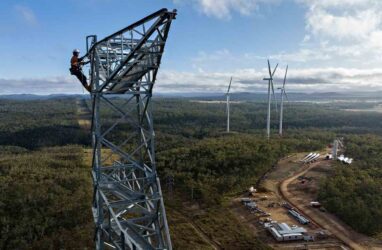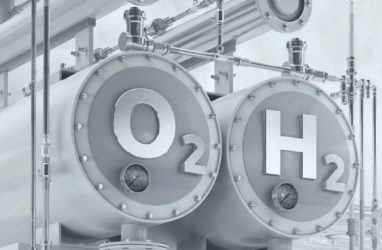Feed aggregator
Colombian habitat bank sells out biodiversity credits
Coal outages strike across two states as power prices march up
 Number of coal outages hit grid over long weekend as generator warns of more price hikes.
Number of coal outages hit grid over long weekend as generator warns of more price hikes.
The post Coal outages strike across two states as power prices march up appeared first on RenewEconomy.
Australia needs 1.5°C target to break regulatory deadlock and kick coal out of grid
 Australia urged to set "bold" 1.5°C target to try and break regulatory deadlock and investment blockage that threaten to derail its transition to renewables.
Australia urged to set "bold" 1.5°C target to try and break regulatory deadlock and investment blockage that threaten to derail its transition to renewables.
The post Australia needs 1.5°C target to break regulatory deadlock and kick coal out of grid appeared first on RenewEconomy.
Non-profit turns to crowdfunding to get marine biodiversity credit design over finishing line
Virgin Galactic’s use of the 'Overview Effect’ to promote space tourism is a terrible irony
Beetaloo gas developer confirms LNG export plans at controversial Middle Arm precinct
ACT starts to bank its cheapest wind power yet in next stage to kick out fossil fuels
 ACT starts to source its cheapest wind power yet, guaranteeing lower prices into the future as it moves to next stage of kicking out fossil fuels.
ACT starts to source its cheapest wind power yet, guaranteeing lower prices into the future as it moves to next stage of kicking out fossil fuels.
The post ACT starts to bank its cheapest wind power yet in next stage to kick out fossil fuels appeared first on RenewEconomy.
Carbon Markets Specialist, Corporate Carbon – Sydney
CP Daily: Monday June 12, 2023
UK innovators get £4.3m to develop space-based solar power
Minister says technology to collect energy and beam it to Earth could help boost UK’s energy security
UK universities and tech companies are to receive £4.3m in government funding to develop space-based solar power.
The technology, which collects energy from the sun using satellite-mounted panels and beams it to Earth, had huge potential to boost the UK’s energy security, the UK’s energy security secretary, Grant Shapps, said.
Continue reading...Match made in heaven: Plant-fungi relationships could trap over a third of global fossil fuel emissions, finds new study
Microbes critical factor for soil carbon storage, new research confirms
Dutch climate-tech firm raises €3 mln in new funding
El Niño combined with global warming means big changes for New Zealand’s weather
Just 5% of global emissions are covered by credible targets, new corporate disclosure tracker finds
Impact investment fund provides $3.5 million to expand African cookstove supply
WCI Markets: CCAs rally to 10-mth high ahead of cap-and-trade rulemaking workshop
New York lawmaker looks to 2024 after LCFS legislation sputters
RGGI Market: RGAs sink after Q2 auction settlement misses to downside
Hydrogen’s dirty secret: Leaks could have 12-times impact on global warming than CO2
 Study says leaked hydrogen could have global warming impact 12-times stronger than CO2, highlighting need to prevent leakages during production, transportation, and usage.
Study says leaked hydrogen could have global warming impact 12-times stronger than CO2, highlighting need to prevent leakages during production, transportation, and usage.
The post Hydrogen’s dirty secret: Leaks could have 12-times impact on global warming than CO2 appeared first on RenewEconomy.



